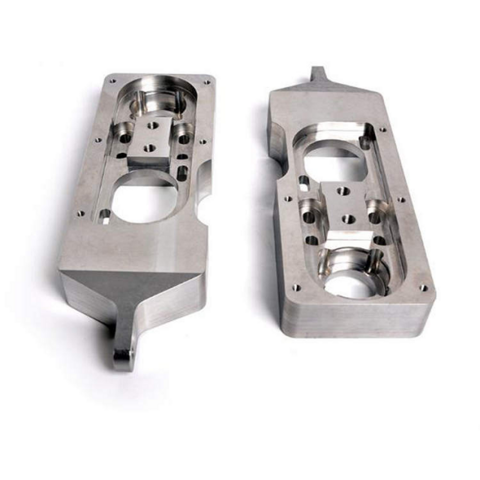Alcast Company Fundamentals Explained
Table of ContentsThe Ultimate Guide To Alcast CompanySome Known Incorrect Statements About Alcast Company Alcast Company Things To Know Before You BuyNot known Details About Alcast Company All about Alcast CompanyAlcast Company Fundamentals Explained
The subtle difference exists in the chemical content. Chemical Comparison of Cast Aluminum Alloys Silicon promotes castability by decreasing the alloy's melting temperature and improving fluidity during spreading. It plays a vital function in allowing intricate molds to be loaded precisely. Furthermore, silicon adds to the alloy's stamina and wear resistance, making it valuable in applications where resilience is important, such as automobile parts and engine parts.It also improves the machinability of the alloy, making it simpler to refine into ended up products. In this method, iron contributes to the total workability of aluminum alloys.
Manganese adds to the strength of aluminum alloys and boosts workability (aluminum foundry). It is typically made use of in wrought light weight aluminum products like sheets, extrusions, and profiles. The visibility of manganese aids in the alloy's formability and resistance to fracturing throughout construction procedures. Magnesium is a lightweight component that provides stamina and influence resistance to aluminum alloys.
The smart Trick of Alcast Company That Nobody is Discussing
It enables the manufacturing of lightweight elements with outstanding mechanical properties. Zinc improves the castability of light weight aluminum alloys and aids manage the solidification procedure throughout spreading. It boosts the alloy's strength and firmness. It is frequently discovered in applications where detailed shapes and fine information are essential, such as decorative castings and certain auto parts.

The key thermal conductivity, tensile toughness, yield strength, and prolongation vary. Among the above alloys, A356 has the highest thermal conductivity, and A380 and ADC12 have the cheapest.
See This Report about Alcast Company

In precision casting, 6063 is appropriate for applications where elaborate geometries and premium surface coatings are critical. Examples include telecommunication units, where the alloy's premium formability enables streamlined and visually pleasing styles while maintaining architectural honesty. Likewise, in the Illumination Solutions industry, precision-cast 6063 parts produce stylish and efficient lights components that need intricate forms and great thermal performance.
It leads to a finer surface area finish and better deterioration resistance in A360. The A360 shows premium prolongation, making it suitable for facility and thin-walled elements. In precision spreading applications, A360 is well-suited for sectors such as Consumer Electronic Devices, Telecommunication, and Power Tools. Its improved fluidness permits detailed, high-precision elements like smart device housings and interaction device housings.
The Ultimate Guide To Alcast Company
Its special residential properties make A360 an important selection for precision spreading in these markets, boosting product durability and high quality. Light weight aluminum alloy 380, or A380, is an extensively utilized casting alloy with a number of distinctive attributes. It provides outstanding castability, making it an optimal choice for precision casting. A380 displays great fluidity when molten, making sure elaborate and in-depth mold and mildews are accurately duplicated.
In accuracy casting, light weight aluminum 413 shines in the Consumer Electronics and Power Tools markets. This alloy's superior deterioration resistance makes it an excellent option for exterior applications, guaranteeing durable, sturdy items in the stated industries.
Getting My Alcast Company To Work
Once you have actually decided that the aluminum pass away casting process appropriates for your task, a vital following action is picking the most ideal alloy. The light weight aluminum alloy you site web choose will considerably impact both the spreading procedure and the residential or commercial properties of the final item. Due to the fact that of this, you need to make your choice thoroughly and take an educated method.
Establishing one of the most appropriate light weight aluminum alloy for your application will imply evaluating a broad selection of characteristics. These comparative alloy attributes comply with the North American Die Spreading Organization's guidelines, and we have actually divided them into 2 categories. The first category addresses alloy attributes that influence the manufacturing procedure. The 2nd covers features influencing the buildings of the end product.
The smart Trick of Alcast Company That Nobody is Talking About
The alloy you choose for die casting directly impacts a number of elements of the casting process, like how easy the alloy is to work with and if it is prone to casting problems. Hot breaking, likewise understood as solidification splitting, is a regular die spreading flaw for aluminum alloys that can cause inner or surface-level rips or fractures.
Certain aluminum alloys are extra prone to hot breaking than others, and your selection needs to consider this. It can damage both the actors and the die, so you must look for alloys with high anti-soldering buildings.
Rust resistance, which is already a notable feature of light weight aluminum, can vary substantially from alloy to alloy and is a crucial particular to take into consideration relying on the environmental conditions your product will be exposed to (aluminum foundry). Put on resistance is an additional residential property typically sought in aluminum items and can differentiate some alloys